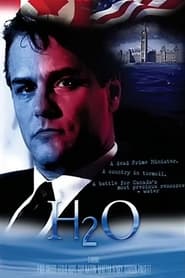War Politics TV Series - Page 61
-
Résistance
2021
Résistance
2021
They love France. They will fight the German invaders with everything they've got - but they haven't got a clue how. Meet the FIFIs. -
Глаз пустыни
2024
-
Xiao Yan San Jin
2016
Xiao Yan San Jin
2016
In 1950 Shanghai, a former soldier leads a village of outcasts and exiles to transform barren land into a new home, all while uncovering spies and fighting for love and hope in a turbulent new era. -
贺兰雪
1995
贺兰雪
1995
-
For Queen and Country
1979
star 6.5Voor koningin en vaderland (English: For Queen and Country) is a 1979 Dutch television miniseries created and written by Erik Hazelhoff Roelfzema and Gerard Soeteman, and directed by Paul Verhoeven. The four-part serial is an extended version of Verhoeven's 1977 film Soldaat van Oranje (Solider of Orange). During World War II, Leiden students–among them Erik, Guus, Jan, Alex and Robby–collaborate and/or join the resistance movement against the German occupation of the Netherlands. -
The Governor
1977
-
匹夫英雄
2016
匹夫英雄
2016
-
High Flyers
2020
High Flyers
2020
star 6.9Follow three friends through their many years of intensive training to become fighter pilots with the Royal Netherlands Air Force and as they graduate and carry out a dangerous mission in the Middle East. -
天地奇英花木兰
1996
天地奇英花木兰
1996
-
Special Forces Squad
1987
-
Heroes II: The Return
1991
star 8Heroes II: the Return is a 1991 Australian mini-series about Operation Rimau during World War II. The true and tragic story of Operation Rimau, one of the most daring raids of WW2. In September 1944 Ivan Lyon and 22 Australian and British troops attempted to blow up Japanese ships in Singapore. Just 10 miles away from the target they are discovered and so begin a long and desperate bid to escape to Australia. The series shows how after the war it is revealled that 13 men were killed during the pursuit and that the remaining 10 were murdered by the Japanese in a war crime. Tragically this was covered up and their killers were never charged while the men themselves never received any honours for their heroism. -
H2O
2004
H2O
2004
star 9H2O is a Canadian political drama two-part miniseries that first aired on the CBC Television October 31, 2004. It starred Paul Gross and Leslie Hope, with former politician Belinda Stronach making a cameo appearance. Written by Gross and John Krizanc and directed by Charles Binamé, it was nominated for five Gemini Awards and four DGC Craft Awards. It won one Golden Nymph Award for best actor. -
绝对权力
2003
绝对权力
2003
-
Change the World
2018
-
Smile, General
2023
Smile, General
2023
star 10A shocking scandal shakes the nation's top brass, sparking a ruthless power struggle between its president and his brother in uniform. -
Secret Service
0000
Secret Service
0000
A British intelligence officer races against time to uncover a UK politician's potential ties with the Kremlin, risking her reputation and family, as a murder and election loom. -
WWII Air Crash Detectives
2014
star 2.5Garth Barnard has a lifelong passion and unshakeable resolve to investigate how thousands of young Airmen from the Second World War died in catastrophic air accidents and training crashes. -
The Turning Point
2019
-
Xia Tan Gao Fei
2014
Xia Tan Gao Fei
2014
After Japan announced its unconditional surrender in 1945, news spread that a batch of Japanese arms had been hidden in Longcheng. The Communist Party, the Kuomintang, and local warlords launched a desperate struggle for this. Gao Fei was ordered to go to Longcheng to search for clues for his dead brother. He led Jin Xiaoban, He Min and others, with the help of the Communist Party, together with Shen Bing sent by the Kuomintang, Lu Dingjun, a local warlord who dominated one side, and the Japanese squad who were unwilling to surrender.



















